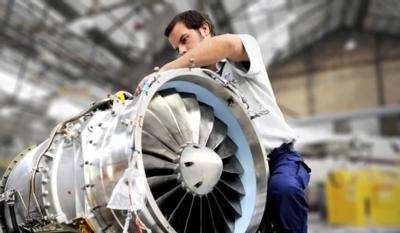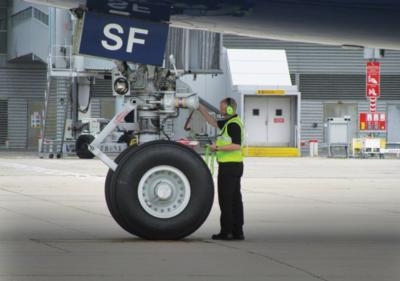Sun, Jun 19, 2016
Courses Developed By Academia And Industry Offer A Balance Of Theoretical And Hands-On Training
AeroAcademy, the University of South Wales (USW) and the Aviation Skills Partnership have created a Professional Aviation Engineering Practice degree level course. With lessons commencing in September 2016, the course is available as a three-year BSc (Hons) Degree or a two-year Foundation Degree.

Both courses are tailored to provide graduates with excellent career opportunities in aerospace and are based on an Aviation Skills Partnership framework and around the European Aviation Safety Agency (EASA) Category B licence. Students will be taught at AeroAcademy, which is located close to Cambridge Airport and the headquarters of Marshall Aerospace and Defence Group; one of the world’s largest independent aerospace companies.
Ian Peart, General Manager of AeroAcademy, comments: “Our collaboration with the Aviation Skills Partnership and the University of South Wales has produced two extremely fit-for-purpose degree courses, leading to excellent career opportunities for the successful graduates - as well as feeding qualified, enthusiastic engineers into the aerospace industry.”

The first two years of training/education are common to both courses. Year 1 provides the basic knowledge of the principles behind and the practical methods for performing essential engineering tasks; and provides an introduction to the use of design tools, manufacturing techniques and health and safety protocols. Year 2 will present students with the option of pursuing either an EASA Type-B1 licence (which focuses on the mechanical engineering aspects of aircraft design) or a Type–B2 licence (which focuses on the avionics systems used in aircraft design).
Year 3 – for the BSc (Hons) Degree only – covers a range of topics around the aerospace business environment. Students will, for example, learn about a variety of aeronautical engineering issues, including planning, operations, health and safety, regulations and management.
(Image provided with Marshall Aerospace and Defense Group news release)
More News
Airport Marking Aids Markings used on runway and taxiway surfaces to identify a specific runway, a runway threshold, a centerline, a hold line, etc. A runway should be marked in ac>[...]
"It is extremely difficult, if not impossible, for manned aircraft to see a drone while conducting crop-enhancing and other aerial applications at low altitudes and high speeds. We>[...]
Aero Linx: The Skyhawk Association The Skyhawk Association is a non-profit organization founded by former Skyhawk Pilots which is open to anyone with an affinity for the A-4 Skyhaw>[...]
“The T-54A benefits from an active Beechcraft King Air assembly line in Wichita, Kansas, where all required METS avionics and interior modifications are installed on the line>[...]
Aero Linx: Aerostar Owners Association The Association offers the Aerostar Owner a unique opportunity to tap an invaluable source of information concerning the care and feeding of >[...]
 ANN's Daily Aero-Term (04.28.24): Airport Marking Aids
ANN's Daily Aero-Term (04.28.24): Airport Marking Aids Aero-News: Quote of the Day (04.28.24)
Aero-News: Quote of the Day (04.28.24) ANN's Daily Aero-Linx (04.28.24)
ANN's Daily Aero-Linx (04.28.24) Aero-News: Quote of the Day (04.29.24)
Aero-News: Quote of the Day (04.29.24) ANN's Daily Aero-Linx (04.29.24)
ANN's Daily Aero-Linx (04.29.24)




